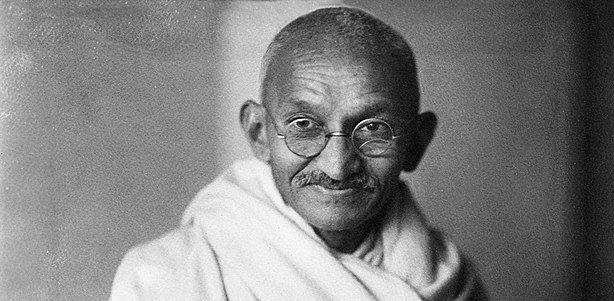Gandhi is the perfect controversial figure to appear on British currency
As the United Kingdom looks back on its colonial past and tears down statues of people once revered as the untouchable greats of our nation, a tough decision emerges for the powers that be. They must decide which historical figure is to grace the new print of legal tender. Choosing Gandhi to feature on British money would be the perfect move by the Royal Mint. It would demonstrate that history leaves no great figure untouched, while also reminding us of how far our society has progressed.
There are those that vehemently disagree with my view, but with a deeper analysis, they do not succeed in arguing their case. Jawad Iqbal’s commentary in the Times argued that Gandhi should not be featured on a British coin. He cited Gandhi’s encouragement of Indian racial superiority in apartheid South Africa, as well as his practice of forced celibacy with his underage niece. It is a superficially convincing critique of Gandhi’s personal beliefs and actions. However, I was disappointed that Iqbal’s opposition came in the form of an emotional attack on the less inspiring views of the man who gave a voice to 300 million people.
We seem to only want gods free of sin amongst a complex sea of humanity
We can apply this method argument to any prominent figure in history and see that it fails to provide the valid criticism that people see in it. Martin Luther King was known to mistreat women. Nelson Mandela had a history with political violence, maintained a close relationship with Muammar Gadaffi, and supported Yasser Arafat. Aung San Suu Kyi is infamously silent over violence against Myanmar’s Rohingya Muslims. Do these actions cancel out the great change they created in the world? Surely no one can sincerely hold this view. For me, opposition for Gandhi on British currency only shows that many fail to see human beings as multi-faceted individuals. We seem to only want gods free of sin amongst a complex sea of humanity.
Gandhi’s peace movement helped an area of the world emerge out of a historically divided and troubled history as a strong nation-state. In 1947, 300 million people gained freedom from an oppressive empire, as well as hope for their country’s future. On that day there was no Marathi or Bengali, but one unified Indian identity for the first time. This was a direct consequence of one man’s non-violence movement. Its effectiveness was utilised again by people we praise- Martin Luther King and Nelson Mandela- to end systems of segregation that Gandhi would have actually supported. Mandela and King were able to isolate the good preached by Gandhi – a man who thought of them as lesser human beings – and use it to improve the lives of millions.
So why can we not do the same? Are we saying that we are so far ahead in our understanding of morality that we dare not look back to our collective pasts for important lessons?
Mandela and King were able to isolate the good that Gandhi preached – a man who thought of them as lesser human beings – and use it to improve the lives of millions
If we look at other figures who have featured on British tender, the case for Mahatma Gandhi only becomes stronger. He is as deserving of being on British currency as Winston Churchill. Both figures have a complex personal and public history and happen to be on completely opposite ends of their shared issues – the former prime minister called Gandhi a “malignant subversive fanatic”. Yet we can recognise the good they have both done and their great lessons. Churchill was not deterred by the strength of Nazi Germany that had taken over all of mainland Europe. Gandhi was not deterred by the economic and military strength of the strongest empire in the history of humanity.
So what do we gain from having a figure such as Gandhi on our currency? Modern Britain is in its privileged situation because of a largely unfortunate and troubling global history. By choosing Gandhi we recognise the great progress we have made, and reflect on our collective history. We are not commemorating Gandhi’s exploitation of his niece, or his advocation for Indian racial superiority because we all know our society has largely moved past such absurdity. Instead, we realise that the non-violence movement he led was a watershed moment in British and global history. It directly inspired the movements of King and Mandela and changed the perspective of many Britons on the previously idolised empire. Choosing Gandhi will unequivocally demonstrate that Britain’s position on the world stage has changed from an oppressor to an ally to many of its old colonies.

Comments